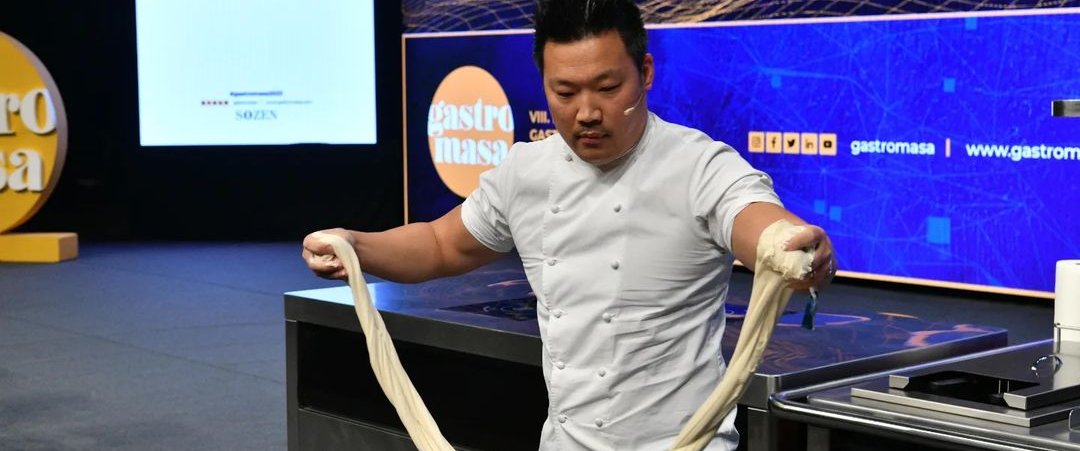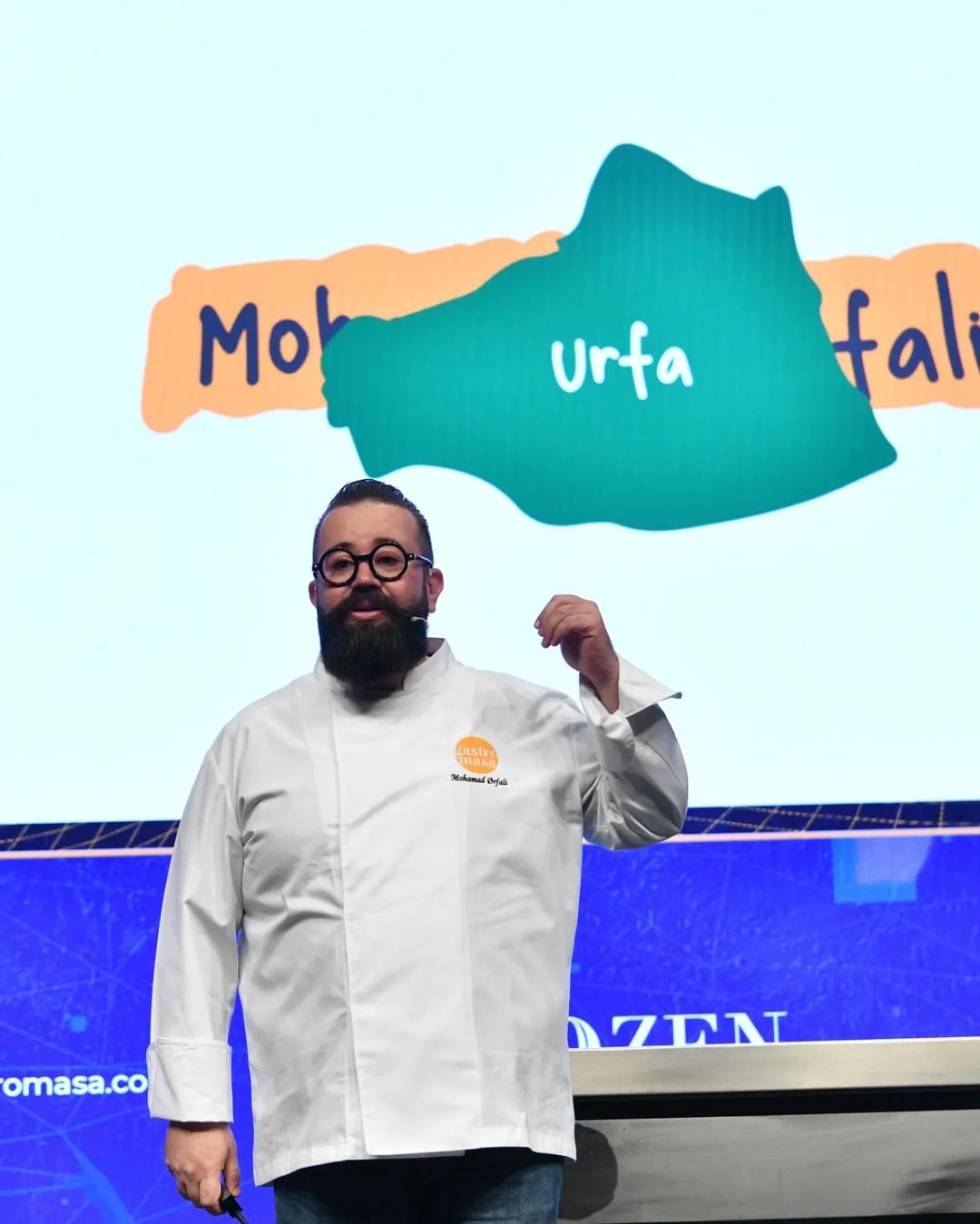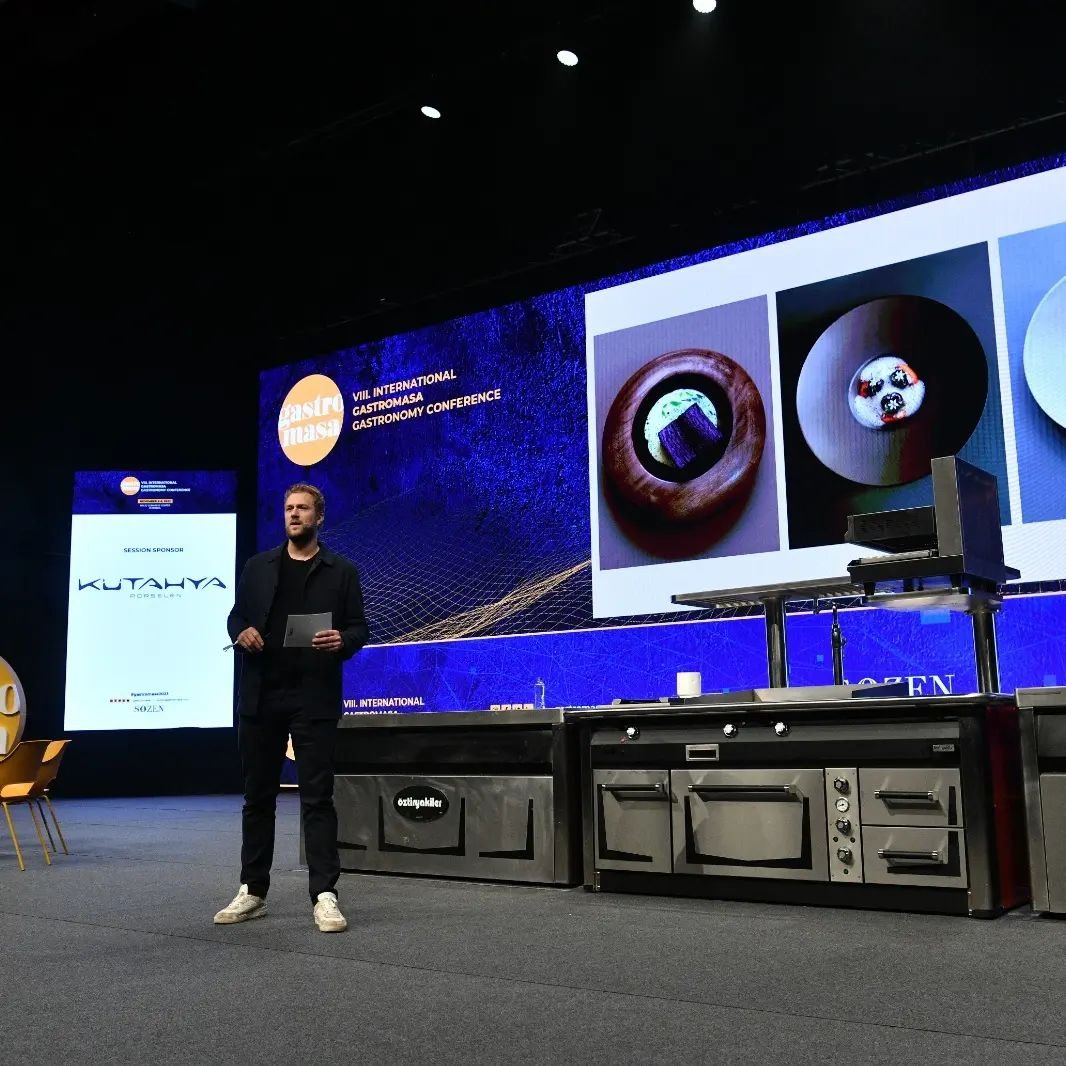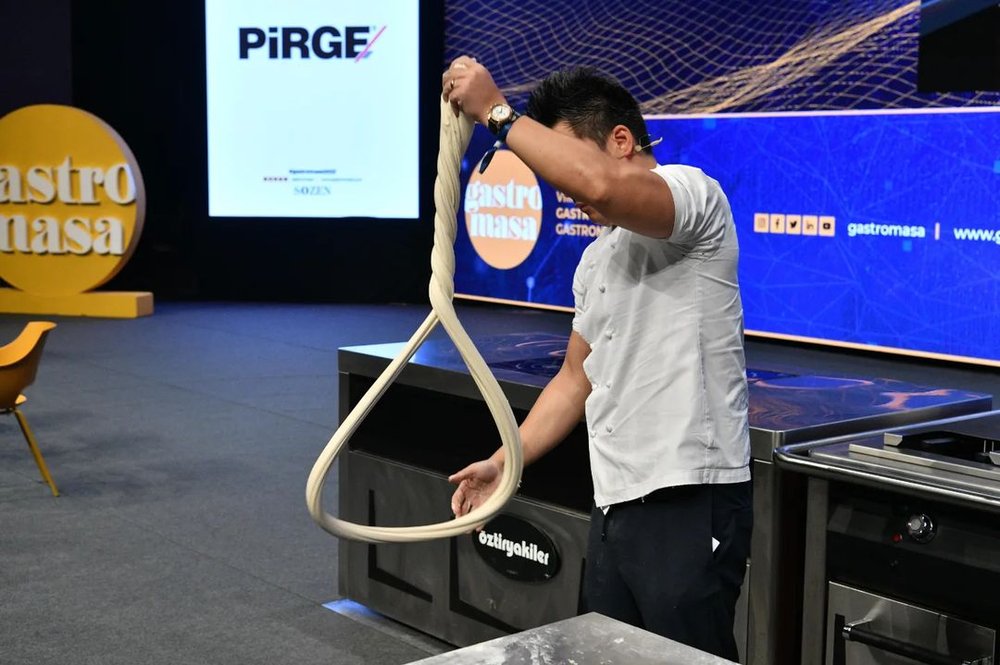Unveiling Global Flavors: A Journey Through Culinary Geography at the 8th Gastromasa Congress in Istanbul

In the heart of Istanbul, a city where history whispers from every cobblestone, my annual tradition since 2017 has been to collect a postcard, a tangible piece of this enchanting metropolis. Each postcard serves as a vivid reminder of the city's mesmerizing blend of cultures and culinary delights, capturing the essence of its vibrant soul. This ritual has become a cherished part of my visits, symbolizing the deep connection I've forged with this magical place.
The streets are adorned with crimson-hued simit carts, purveyors of the ubiquitous bagel, complemented by the omnipresent brew of tea and the pervasive, tantalizing aroma of kebabs. Be it the döner elegantly plated, the dürüm lovingly wrapped in lavash, or the pide cradled in soft flatbread, each contributes to the city's rich sensory tapestry.
Navigating time in this sprawling metropolis, home to 15 million souls, presents an almost Herculean challenge, ultimately leading to a graceful capitulation to the city's capricious rhythm. Turkish hospitality, renowned for its depth, transcends the ordinary bounds of conviviality, offering a warmth and attentiveness that elevates the concept of hosting to an art form. As a visitor, you are seamlessly woven into this familial tapestry, cherished with a thoughtful remembrance, as the locals strive tirelessly to elevate your experience to the pinnacle of perfection.
This time in Istanbul was also dedicated to the 8th edition of the Anneal Culinary Congress Gastromasa. The central theme for this year was 'Geography,' which unfolded through presentations related to gastronomic and cultural aspects influenced by geography, as well as the physical aspects regarding the usage of natural features and territorial valorization. Globally renowned chefs and culinary professionals, who journeyed to Istanbul from all corners of the world, reflected on the topic during the two-day event.
Chef Mohamad Orfali of Orfali Bros Bistro in Dubai, blessed to be born and immersed in different cultures, has brilliantly turned it into an advantage.
Mohammed Orfali’s family hails from Urfa, in the south of Turkey, but he was born and raised in Aleppo, Syria's largest city, with his three brothers. Their grandmother, of Armenian origin, lives in Gaziantep, Turkey. Finally, the Orfali brothers landed in Dubai in 2005, intrigued by its multicultural nature and the welcoming environment for the type of food they wanted to create.
The chef shared that his 'Levantine cuisine,' 'which is not Israeli or Lebanese or anything else, but a connection between all,' is not just about the recipes but also about the lifestyle, the motherland, and the harmonious connection of its elements. It involves cooking techniques such as curing meat, distillation, drying, and fermentation for bread and cheesemaking.

gastromasa
Chef Joris Bijdendijk, currently at the helm of RIJKS and the Wils restaurant, both awarded with a Michelin star, and Wils Bakery Café, has shared his story of the Low Food movement. This movement explores the potential of forgotten and unexplored products in the Netherlands and aims to bring local gastronomy to new heights
Back in 2017, he was invited to an event where he met a prime minister. During this encounter, he gifted the prime minister his first book about Low Countries cuisine, specifically Bijdendijk’s. Having long contemplated ways to advance Dutch gastronomy, Bijdendijk took the opportunity to present his thoughts and proposals to the government. In 2019, the Low Food Foundation (LFF) was born, filling a missing element as a legal form for a group of chefs and producers in dialogue with the government. 'We started as a group of friends – a sausage maker, a politician, and a chef,' says Bijdendijk. In the same year, LFF organized its first symposium on creating a food culture. In 2023, the 4th edition was held under the theme 'Move away from Gut Feeling about Sustainability in Gastronomy,' a movement that incorporates the entire supply chain and engages with institutions. 'We work together to create a food culture in our country.'
Apart from the symposium, education and research are the main directions of work at the foundation. Chef’s Low Food Academy is free to 15 chefs every year, offering a personalized program with a common ethos of making an impact on food. Low Food Labs have become a place of research that is often challenging to realize within a restaurant, says Bijdendijk. The research conducted by the Lab focuses on solving challenges such as food waste, protein substitutes, biodiversity, and food accessibility. From the stage, the chef proudly named some of the recent projects, including one centered around finding culinary ways of using grain varieties usually produced for feeding animals, or a scrupulous study of often-overlooked parts of a chicken that resulted in producing chicken skin leather, plates from its bones, chicken garum, and mortadella as well.

gastromasa
Andrew Wong, the award-winning chef of restaurant A.Wong in London, gave a dynamic speech about the extreme consistency of Chinese cuisine. He shared recipes and techniques such as chicken marinade, Peking duck, and noodle dough. Additionally, he discussed the history of dim sum, which dates back to the 1800s in the Chinese province of Guangdong.
The chef finished his speech with a powerful demonstration of knitting the noodle dough and saying: "The point is that the things looking simple in Chinese gastronomy, if you look deeper, there’s a lot of science, practice, and craftsmanship that goes into it. Almost every country has internalized Chinese gastronomy as part of its own gastronomy and culture to define what it thinks authenticity is. Authenticity is a fluid term; we change it, it evolves. The innovation of today can sometimes really be the authenticity of the future".

gastromasa

gastromasa
Chef Rasmus Munk from the Copenhagen-based, science-forward restaurant Alchemist is indeed thinking globally and pushing the boundaries of fine dining. He aims to launch fine dining experiences in space by 2025 in collaboration with NASA. The chef also announced the launch of Spora, a cutting-edge research hub poised to redefine the future of food. The multidisciplinary team includes experts from the fields of design, art, engineering, as well as gastronomy and science. Spanning 1,000 square meters, Spora will feature a specially equipped research kitchen, state-of-the-art microbiology laboratories, and a fully equipped 3D design and recording studio. .
